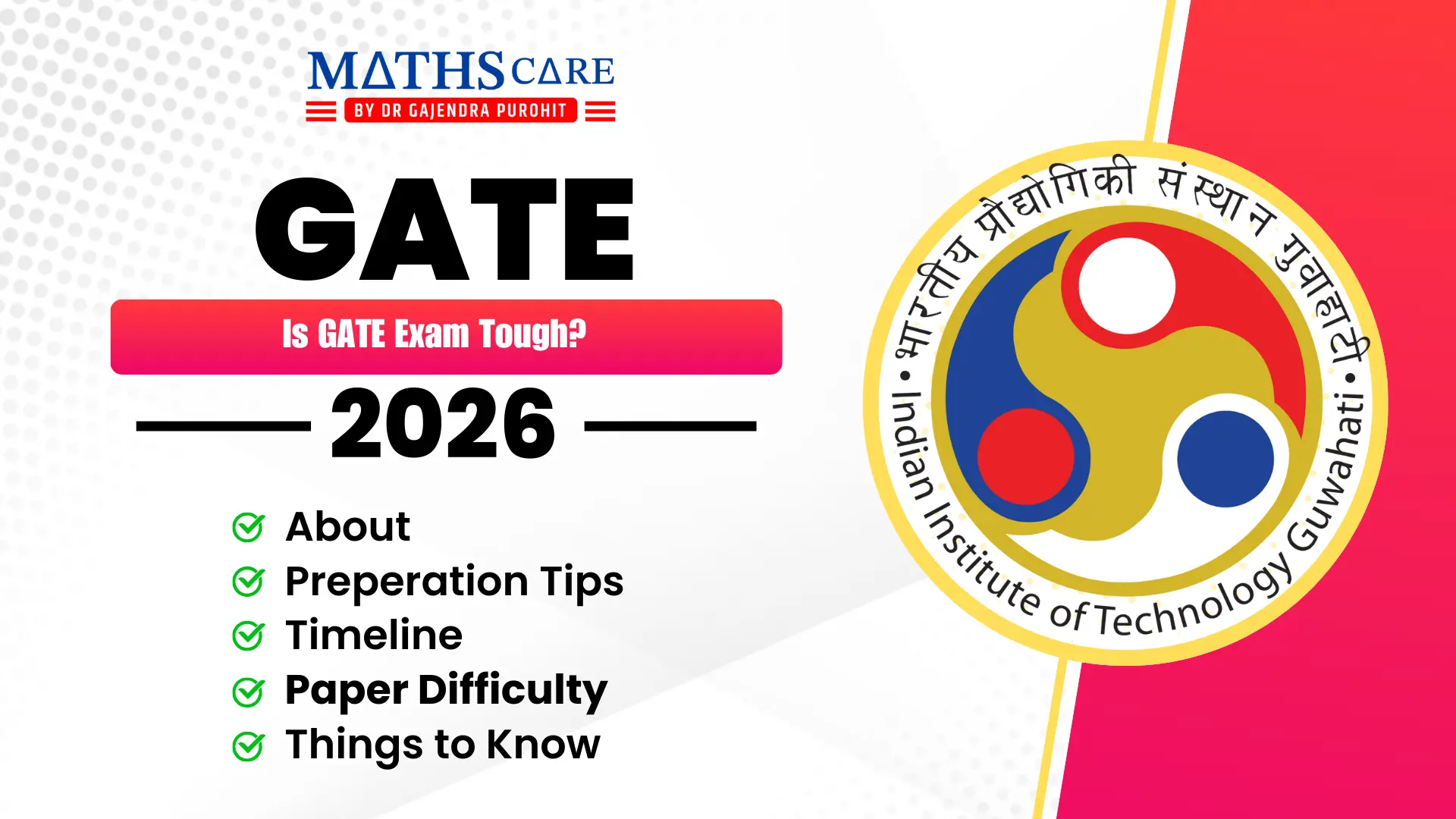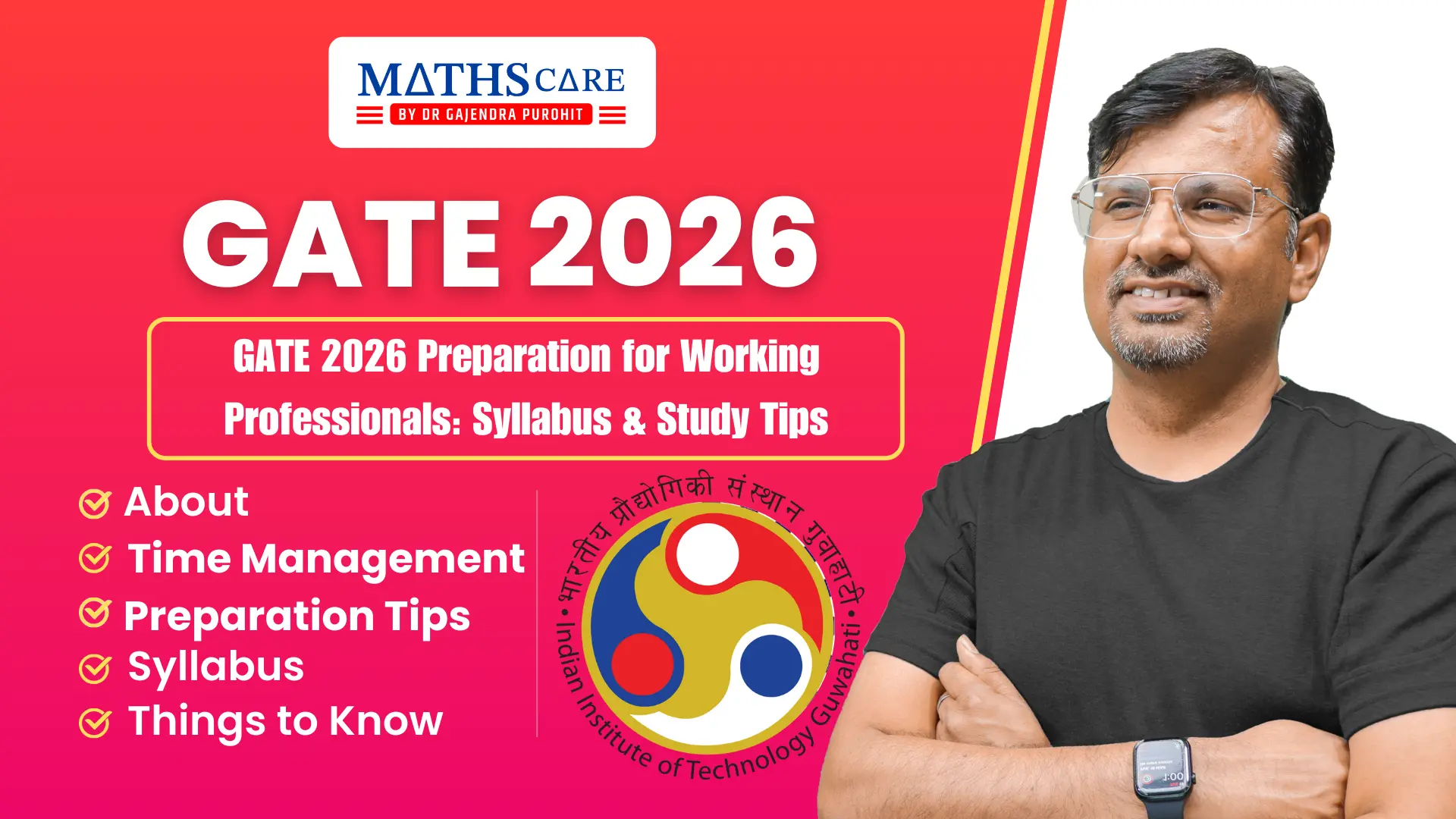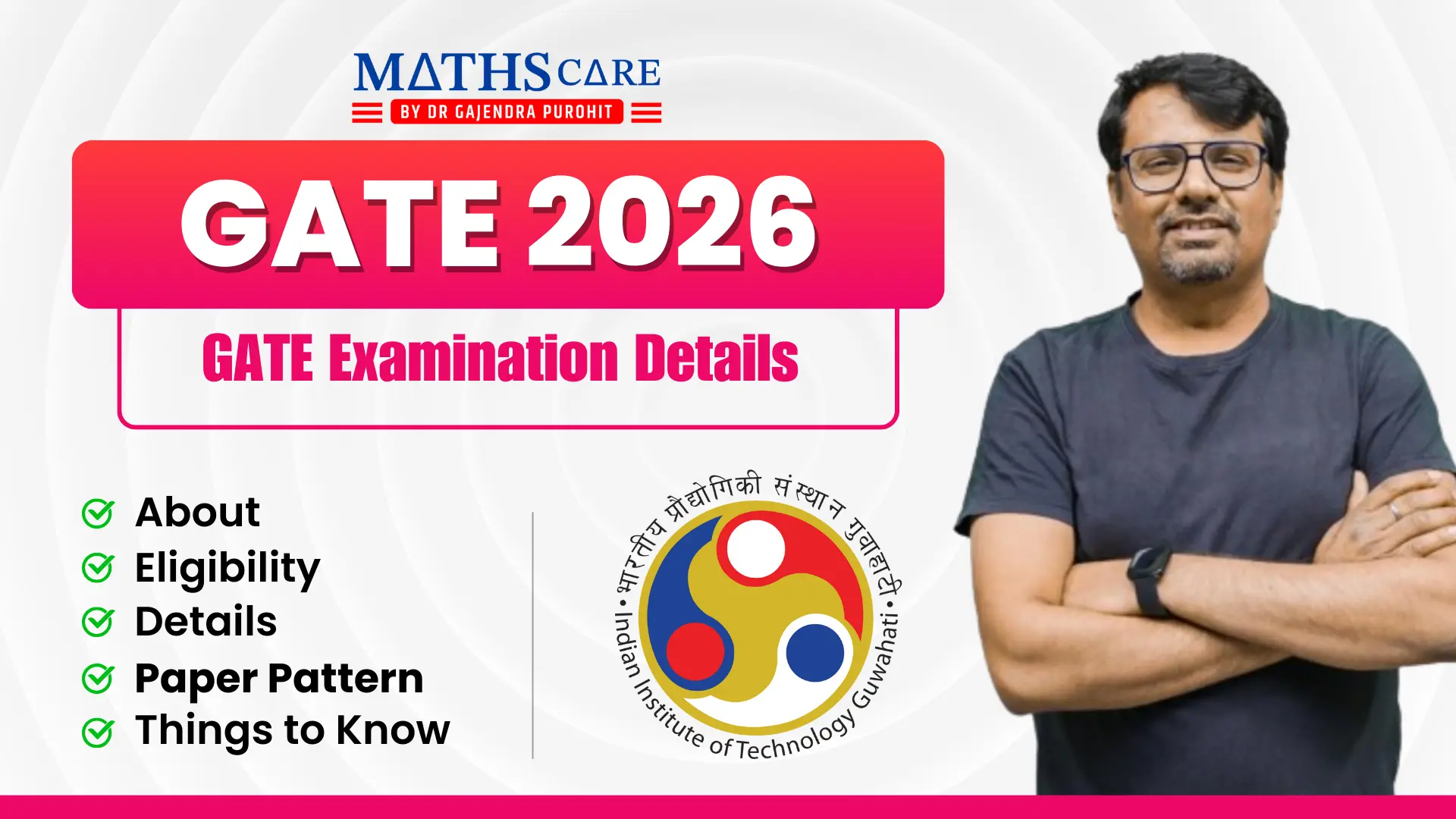Is GATE Exam Tough? GATE Preparation 2026
GATE (Graduate Aptitude Test in Engineering): The GATE exam is often perceived as one of the most challenging entrance tests in India, especially for students aiming for postgraduate studies or PSU recruitment. But how tough is it really? Is the difficulty due to the syllabus, the competition, or the time management involved? This blog answers these questions and offers practical, beginner-friendly tips to help you start your GATE 2026 preparation with clarity and confidence.

Is GATE Exam Tough?
If you’re wondering, “Is GATE exam tough?”—you’re not alone. This is one of the most common questions among first-time aspirants as they begin their GATE preparation journey.
GATE (Graduate Aptitude Test in Engineering) is undoubtedly competitive, but calling it “tough” depends on how you approach it. The exam primarily tests your conceptual clarity and problem-solving skills from your undergraduate curriculum. While the syllabus is extensive, it’s not beyond reach if tackled methodically.
The exam isn’t about memorizing formulas or speed-based guessing. Instead, it rewards deep understanding, logical thinking, and the ability to apply knowledge to new problem types. What makes GATE challenging is the combination of a wide syllabus, limited time per question, and the high competition for top ranks, especially in popular branches like CS, ME, and EC.
What Makes GATE Exam Challenging?
There are several factors that contribute to the difficulty level of GATE:
Vast Syllabus: It covers almost all core topics of your undergraduate program.
Conceptual Depth: Questions are designed to test not just recall but understanding and application.
Multiple Question Types: MCQs, MSQs, and NATs require different solving strategies.
Time Management: You have 180 minutes to solve 65 questions, which includes both General Aptitude and technical questions.
Cut-throat Competition: Over 8 lakh students appear annually, and only a fraction secure top ranks or PSU calls.
Despite these challenges, with the right preparation strategy and discipline, success is well within reach.
GATE 2026 Preparation Timeline
A good GATE preparation strategy begins with a realistic timeline. The earlier you start your GATE exam preparation, the better you can manage your syllabus, mock tests, and revision.
For beginners, a well-planned timeline is essential. Starting early gives you a strategic advantage. Here’s a rough plan:
May–June 2024: Familiarize yourself with the syllabus, previous year papers, and exam structure. Start with easy subjects or those you’re confident in.
July–October 2024: Focus on completing the syllabus with standard textbooks and video lectures. Take handwritten notes.
November–December 2024: Start revising. Solve topic-wise and full-length mock tests. Work on speed and accuracy.
January 2025: Focus on high-weightage topics, revision, and previous year question analysis. Maintain a calm routine.
How to Start If You’re Still in College
If you’re preparing while studying in college, balance is key. Follow this plan:
Use semester subjects: Align GATE prep with your ongoing syllabus.
Daily Study Hours: Dedicate at least 2 hours a day for GATE.
Avoid Procrastination: Use timers, planners, or apps to maintain discipline.
Group Studies: Discuss topics with friends to improve understanding and retention.
Study Resources for Beginners
Choosing the right study resources is critical. Here’s what you need:
Standard Textbooks: Refer to your college books or standard authors for core concepts.
Previous Year Papers: Solve at least 10 years’ worth of papers to understand patterns.
Mock Tests: Enroll in a trusted online test series to benchmark your performance.
YouTube Channels & Online Courses: For topics that need extra explanation, high-quality free content is widely available.
Short Notes & Flashcards: Create quick revision material for last-minute brush-ups.
Focus Areas for Beginners
As a beginner, you should prioritize specific areas that build your foundation and maximize scoring potential in GATE 2026.
Engineering Mathematics and General Aptitude: These two sections are included in every paper and account for a total of 30 marks, making them critical for all candidates. Since the questions are typically moderate in difficulty, preparing them well can significantly boost your overall score.
High-Weightage Topics: Every paper has core subjects that consistently carry more weight across years. Identifying these through previous year analysis helps you focus your time and effort on the areas with the highest return on investment.
Easy-Scoring Areas: Some chapters or subjects are conceptually simple but appear frequently in exams. These are ideal for gaining quick marks and building confidence early in your preparation.
Frequent Revisions: Retaining a wide syllabus requires consistent and spaced repetition. Revising regularly not only strengthens memory but also reduces exam stress and last-minute cramming.
Mistakes to Avoid in GATE Preparation
During GATE exam preparation, beginners often fall into common traps that affect their performance. By recognizing and avoiding these early, you can significantly improve your chances of qualifying GATE with a strong score.
Beginner aspirants often make avoidable mistakes:
Skipping basics: Without strong fundamentals, you can’t attempt application-based questions.
Over-reliance on coaching: Self-study with the right strategy is often more effective.
Ignoring mock tests: These are essential for time management and mental conditioning.
Neglecting GA section: It’s easy and carries 15 marks—don’t lose them.
Final Tips for GATE 2026 Beginners
Start early and build slowly. GATE prep is a marathon, not a sprint.
Stick to a daily routine and keep a track of your progress.
Don’t get demotivated by tough topics; seek help and move forward.
Stay updated with notifications on the official GATE portal.
Trust your process and be consistent—improvement is inevitable.
Conclusion
Is GATE exam tough? It depends on how you prepare. With strategic planning, consistent effort, and smart use of resources, your GATE preparation can transform this challenge into an opportunity for academic and professional growth.
The GATE exam is competitive, but not unconquerable—especially if you start early and study smart. For beginners, success lies in planning well, building strong fundamentals, and practicing consistently. GATE 2026 could be your stepping stone to a rewarding academic or professional journey. Begin today with clarity, and your persistence will lead to success.
GATE FAQS
Admit cards will be available for download in January 2025.
GATE scores are valid for three years from the date of result announcement.
Yes, but only during the correction window, and you may need to provide supporting documents.
Upload the side of your ID showing your photo, name, date of birth, and ID number.
Yes, but you must upload an affidavit with your photo ID.
BEST OFFERING COURSES FOR YOU
BEST BOOKS FOR IIT JAM/ CSIR-NET
BUY BOOKS ON OUR APP
RECENT POSTS











